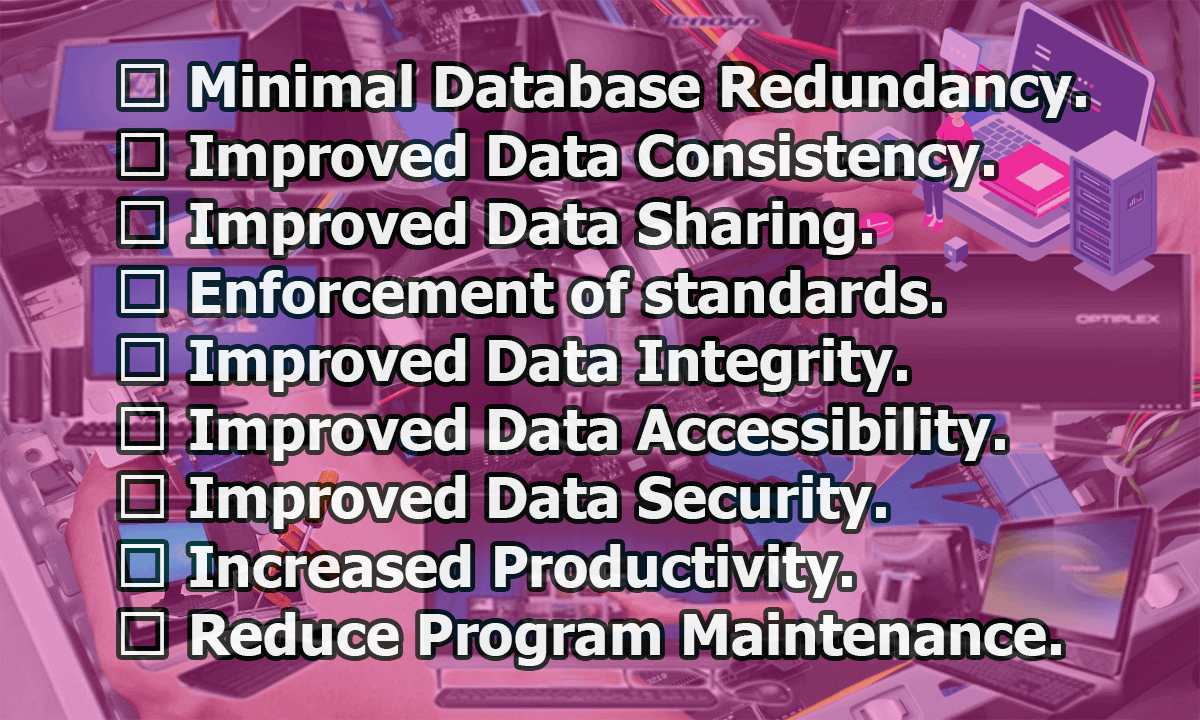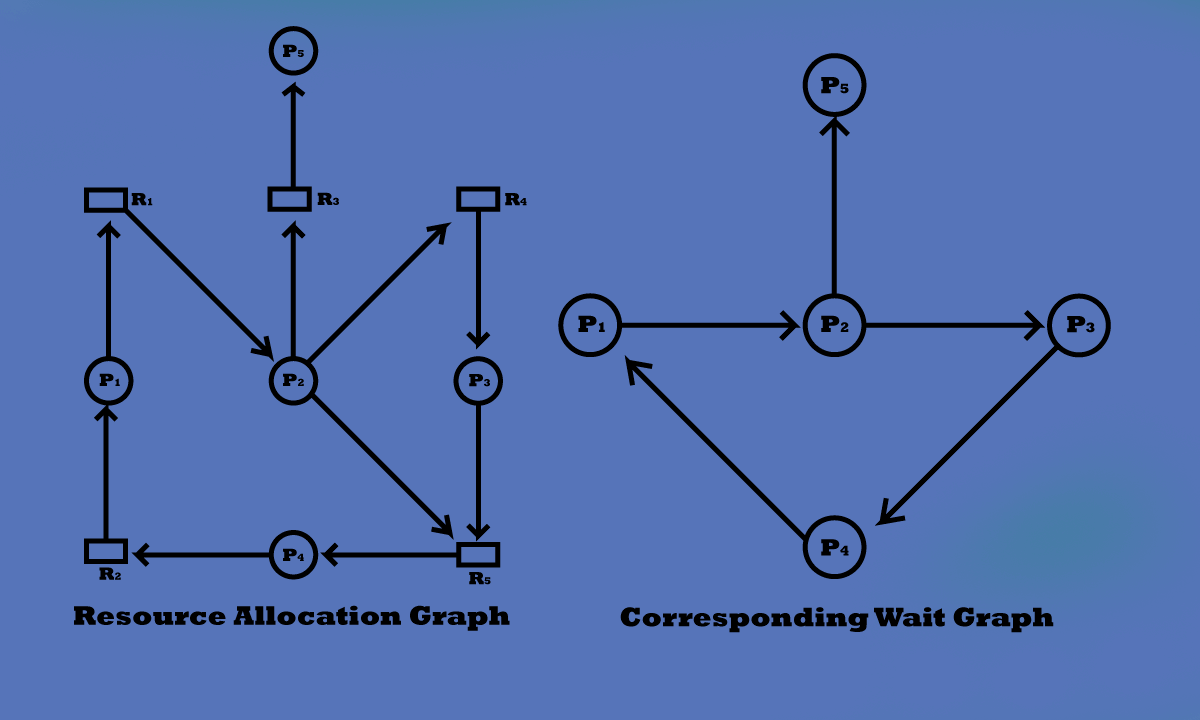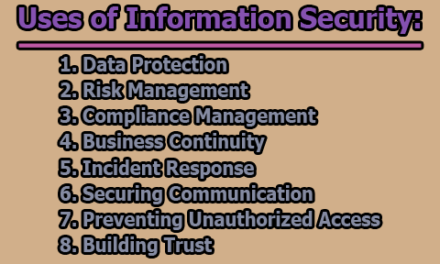Advantages of Database Approach:
The database approach emphasizes the integration & sharing of data throughout the organization. The database approach offers a number of potential advantages compared to the traditional file processing system. Some advantages of the database approach are as follows:
- Minimal Database Redundancy: In traditional no database systems each department maintains its own files for handling its data processing applications. For examples: The university database might have two groups of users e.g. the personnel department & the accounts department. Most of the data is stored twice in the files of each department. This problem can be avoided by having a centralized database. For consistency, a database must store each logical data item: such as students’ names – in only one place in the database.
- Improved Data Consistency: By eliminating controlling data redundancy, we greatly reduce the opportunities for inconsistency. Updating data values in greatly simplified when each value is stored in one place only. Finally, we avoid the wastage storage space that results from redundant data storage.
- Improved Data Sharing: The data stored at a centralized location can easily be shared by existing applications. The same stored data can be used with the new applications also.
- Enforcement of standards: The interchange of data between systems necessitates, standardization of the data representation, with the central control of the database, the database administrator can enforce standards in the representation of data. These standards will include data quality standards and uniform procedures for accessing, updating, and protecting data.
- Improved Data Integrity: The database approach provides a number of tools and processes to improved data quality & integrity. Integrity implies the correctness and accuracy of data. Centralized control of the data enables the database administrator to define integrity constraints to ensure the accuracy and correctness of data stored in the database.
- Improved Data Accessibility: With a relational database, end-users without programming experience can often retrieve and display data.
- Improved Data Security: The Database Administrator (DBA) can be defined as security rules to check unauthorized access to data. Some users may be given the right to only retrieve data. Whereas others may be permitted to retrieve & edit the data. The Database Administrator can formulate different rules for each type of access (retrieve, modify, delete) to each piece of information in the database.
- Increased Productivity: A major advantage of the database approach is that it greatly reduces the cost & time for developing new business applications.
- Reduce Program Maintenance: Stored data must be changed frequently for a variety of reasons: new data item, types are added, data formats are changed and so or in a database, within limits, we can change the data without necessitating a change in other factors, as a result, program maintenance can be significantly reduced in a modern database environment.
Reference:
- Modern Database management, Written by Fred R.Mc Fadden & others (page ―20-33)
- Introduction to Database Management System, Written By ISRD Group ( page – 3)

Library Lecturer at Nurul Amin Degree College










